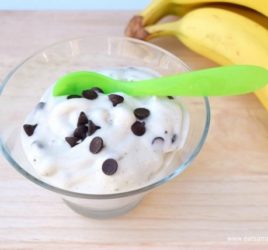
MEDICAL USE OF FRESH FLOWERS
Fresh flowers have been admired for their beauty and fragrance for centuries, but their uses extend far beyond mere decoration. In the field of medicine, fresh flowers offer a range of therapeutic benefits.
Many cultures have harnessed the healing properties of flowers, utilizing them in various forms such as teas, gifts for sick ones, tinctures, and compresses to treat a multitude of ailments.
Modern science is beginning to validate many of these traditional uses, highlighting the potential of fresh flowers in promoting health and well-being. Below are ten medical uses of fresh flowers, explained in detail.
Lavender
Chamomile
Calendula
Echinacea
Rose
Hibiscus
Jasmine
Marigold
St. John’s Wort
Passionflower
1. Lavender (Lavandula angustifolia)
Uses: Lavender is renowned for its calming and relaxing properties.
Applications: Fresh lavender flowers are often used to make teas and essential oils. The essential oil can be applied to the skin or inhaled through aromatherapy to reduce anxiety, improve sleep, and alleviate headaches. Lavender tea can also help with digestive issues.
2. Chamomile (Matricaria chamomilla)
Uses: Chamomile is known for its anti-inflammatory and calming effects.
Applications: Fresh chamomile flowers are commonly used to brew tea, which helps with insomnia, anxiety, and gastrointestinal disorders like irritable bowel syndrome. Chamomile compresses made from fresh flowers can soothe skin irritations and reduce swelling.
3. Calendula (Calendula officinalis)
Uses: Calendula has strong anti-inflammatory, antimicrobial, and wound-healing properties.
Applications: Fresh calendula flowers are used in topical treatments for cuts, burns, and rashes. Calendula-infused oils and creams help speed up the healing process of wounds and prevent infections. Calendula tea can also soothe sore throats and digestive inflammation.
4. Echinacea (Echinacea purpurea)
Uses: Echinacea is known for boosting the immune system and fighting infections.
Applications: Fresh echinacea flowers are used to make teas, tinctures, and extracts that are believed to reduce the duration of colds and flu. Echinacea tea made from fresh flowers can also help alleviate respiratory symptoms and enhance overall immune function.
5. Rose (Rosa spp.)
Uses: Roses have astringent, anti-inflammatory, and antibacterial properties.
Applications: Fresh rose petals are used in various forms, including teas, oils, and topical applications. Rose water, made from fresh petals, is used to soothe skin irritations, reduce redness, and hydrate the skin. Rose tea can help improve digestion and reduce menstrual pain.
6. Hibiscus (Hibiscus sabdariffa)
Uses: Hibiscus is rich in antioxidants and has diuretic and antihypertensive properties.
Applications: Fresh hibiscus flowers are used to make teas that can lower blood pressure, improve liver health, and support weight loss. Hibiscus tea also has a high vitamin C content, which boosts the immune system and promotes overall health.
7. Jasmine (Jasminum spp.)
Uses: Jasmine is known for its calming and mood-enhancing effects.
Applications: Fresh jasmine flowers are often used in teas and essential oils. Jasmine tea can reduce stress, improve mood, and promote better sleep. Jasmine essential oil, derived from fresh flowers, is used in aromatherapy to alleviate anxiety and depression.
8. Marigold (Tagetes spp.)
Uses: Marigolds possess antimicrobial and anti-inflammatory properties.
Applications: Fresh marigold flowers are used in topical treatments to heal wounds, reduce inflammation, and prevent infections. Marigold infusions can be applied to the skin to treat acne, eczema, and other skin conditions. Marigold tea can also help with digestive issues.
9. St. John’s Wort (Hypericum perforatum)
Uses: St. John’s Wort is known for its antidepressant and anti-inflammatory effects.
Applications: Fresh St. John’s Wort flowers are used to make teas, tinctures, and oils. The tea is often consumed to alleviate mild to moderate depression and anxiety. St. John’s Wort oil, made from fresh flowers, can be applied to the skin to treat minor wounds, burns, and muscle pain.
10. Passionflower (Passiflora incarnata)
Uses: Passionflower has calming and sedative properties.
Applications: Fresh passionflower is used to make teas and tinctures that help with anxiety, insomnia, and nervousness. Passionflower tea can promote relaxation and improve sleep quality. Topical applications of passionflower can also help soothe skin irritations.
Fresh flowers offer a natural and effective way to address various health concerns. Their therapeutic properties, whether used in teas, oils, or topical applications, provide numerous benefits.
Integrating the medicinal use of fresh flowers into healthcare practices can enhance physical and emotional well-being, bridging the gap between traditional remedies and modern medicine.



